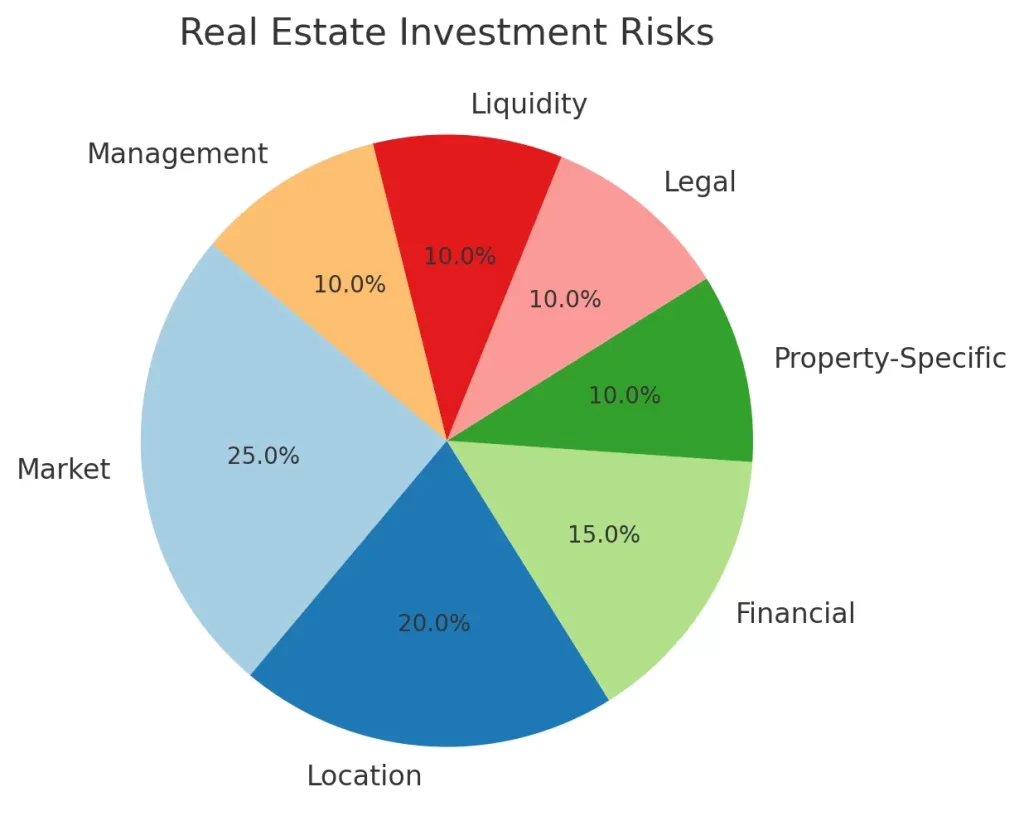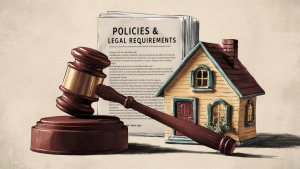
Airbnb Guest: A Host’s Guide to a Memorable Start
Facebook Twitter LinkedIn Reddit Email WhatsApp Welcome Your First Guest on Airbnb: A Host’s Guide to a Memorable Start Welcoming your first guest on Airbnb
Investing in real estate can be a lucrative venture, offering opportunities for significant returns and portfolio diversification.
Understanding these risks is crucial for making informed decisions and mitigating potential losses. Here’s an in-depth look at the key risks associated with real estate investment.
Market risk refers to the possibility that changes in the real estate market will negatively affect the value of your investment. Market conditions can be influenced by various factors, including economic downturns, interest rate changes, and shifts in supply and demand.
Location risk involves the potential impact of a property’s geographic location on its performance. A prime location can lead to high demand and strong returns, while a poor location can result in vacancy issues and stagnant or declining property values.

Financial risk is associated with the financial aspects of a real estate investment, including financing and cash flow management.
Property-specific risk pertains to issues directly related to the property itself, such as structural problems, maintenance issues, and tenant-related concerns.
Legal and regulatory risk involves the potential impact of changes in laws and regulations on your real estate investment.

Market liquidity risk refers to the potential difficulty of selling a property quickly without significantly reducing its price.

Management risk involves the challenges associated with managing a real estate investment, whether self-managing or hiring a property management company.
“If you’re not going to put your money into real estate, Where else?”
– Tamir Sapir Tweet
Real estate investment can be rewarding but comes with risks. By understanding market, location, financial, property-specific, legal, liquidity, and management risks, investors can develop strategies to mitigate challenges and make informed decisions. Conduct thorough research, perform due diligence, and consult with professionals to navigate complexities. Careful planning and risk management enhance the potential for investment success.

Facebook Twitter LinkedIn Reddit Email WhatsApp Welcome Your First Guest on Airbnb: A Host’s Guide to a Memorable Start Welcoming your first guest on Airbnb

Facebook Twitter LinkedIn Reddit Email WhatsApp Mastering Airbnb Policies and Legal Requirements: A Guide for Hosts If you’re considering hosting on Airbnb, understanding the platform’s

Facebook Twitter LinkedIn Reddit Email WhatsApp The Anatomy of a Perfect Airbnb Listing Creating an irresistible Airbnb listing is both an art and a science.

Facebook Twitter LinkedIn Reddit Email WhatsApp Getting Started as a Host on Airbnb: A Step-by-Step Guide Are you considering hosting on Airbnb but don’t know